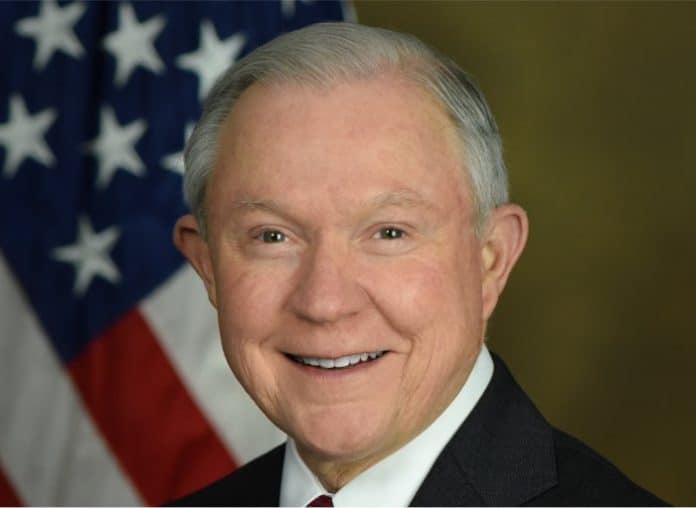U.S. Attorney General Jeff Sessions is among the defendants named in federal lawsuit challenging the Controlled Substances Act (CSA) in relation to cannabis.
The 90-page complaint says the CSA is “so irrational” in classifying Cannabis as a Schedule I drug, that the situation is unconstitutional.
For a drug to qualify as Schedule I, it must satisfy all of the following criteria.
- Have a high potential for abuse
- Have no currently accepted medical use in treatment in the United States.
- Have a lack of accepted safety for use under medical supervision.
Drugs in this category include LSD and heroin – and many would argue cannabis simply isn’t in the same league.
Over half of US states have legalised cannabis to some degree and more than 60% of Americans live in a jurisdiction in which medical cannabis is legal. Scientific evidence is mounting that cannabis does have a number of applications in treating various conditions – and with less risk than conventional treatments. Cannabis is continuing to gain acceptance in the medical community.
“The record makes clear that the CSA doesn’t make any rational sense, and the Federal Government knows it,” says attorney Michael Hiller, lead counsel in the case. “If the Federal Government doesn’t believe in the rationality of its own statute, it’s unconstitutional to enforce it.”
It was recently revealed Jeff Sessions wrote to a number of lawmaker, seeking to end protection of legal state medical cannabis programs. U.S. President Donald Trump’s picking of Mr. Sessions for the role of AG back in November last year sent shivers up the spine of some in the medical cannabis industry, fearing that he would take action such as that seen in June.
However, Attorney General Sessions may not be around for much longer – various reports state his job is on the line over unrelated issues. The complaint will no doubt add an unwelcome burden to the already beleagured AG.
As well as Attorney General Sessions, other defendants named in the case are Acting Administrator of the DEA Chuck Rosenberg, the Justice Department, the DEA and the Federal Government.
The plaintiffs are a collective from diverse backgrounds, including a retired NFL player and an 11 year old girl.
If the complaint is upheld, it would not legalize cannabis per se, but it would no longer be illegal at a Federal level, leaving the states to control availability and use as they deem fit – as many are already doing; but without the long shadow of federal government looming over them.
The full text of the complaint can be viewed here (PDF).


